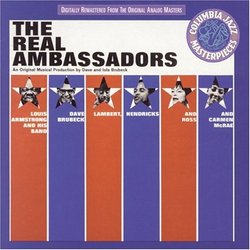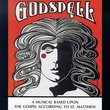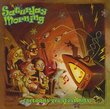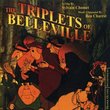| All Artists: Dave Brubeck, Lambert Hendricks & Ross, Louis Armstrong Title: The Real Ambassadors Members Wishing: 3 Total Copies: 0 Label: Sony Release Date: 6/14/1994 Genres: Jazz, Pop, Broadway & Vocalists Styles: Cool Jazz, Traditional Jazz & Ragtime, Vocal Jazz, Vocal Pop, Classic Vocalists, Traditional Vocal Pop Number of Discs: 1 SwapaCD Credits: 1 UPCs: 074645766324, 074645766348 |
Search - Dave Brubeck, Lambert Hendricks & Ross, Louis Armstrong :: The Real Ambassadors
 | Dave Brubeck, Lambert Hendricks & Ross, Louis Armstrong The Real Ambassadors Genres: Jazz, Pop, Broadway & Vocalists
|
Larger Image |
CD DetailsSimilarly Requested CDs |
CD ReviewsSomething different, but an acquired taste Andre M. | Mt. Pleasant, SC United States | 09/18/2001 (4 out of 5 stars) "Essentially, this is a 1961-62 jazz opera about the great Satchmo serving as a "Real Ambassador" to the USA, as opposed to the segregationists (Brubeck loosely based this on Armstrong's refusal to go abroad during the 1957 school integraton crisis). Some of this is quite dated to listeners who may not be familiar with the events of the era (or the jokes about Jacke Robinson and Jackie Kennedy). The bebop vocalisms of Hendricks, Lembert and Ross (particularly the latter's high pitch) may also annoy modern listeners. However, Carmen McCrae's smooth vocal stylings with the Brubeck group are almost alone worth the price of admission. And of couse, there's Satch himself doing perhaps his most message-oriented work until his recording of "We Shhall Overcome" shortly before his death. "Summer Song" has Satch looking back wistfully at his childhood. But the tour-de-force here is "They Say I Look Like God." This is perhaps his most moving vocal performance and most searing public statement against racism and you can hear him crying at the end (this ain't "Hello Dolly," folks). The reprise of "Blow Satchmo" at the end may sound silly and annoying at first, but you'll find yourself trying (without much success) to stop humming it to yourself for days afterward. Satch fans take note-if you go to your record store looking for this, it's listed under Dave Brubeck (who wrote and played on this) and not Louis Armstrong. Strongly recommended for hardcore Satch fans and pop-culture historians." A Classic Vera Algoet | Watsonville, CA USA | 07/18/2000 (5 out of 5 stars) "I had the privilege to hear this jazz opera performed at the 1962 Monterey Jazz Festival when I was 12 years old. It was one of the most memorable experiences of my childhood, and the album always brought back the excitement of seeing all those incredible performers together on stage. I've long since lost the LP, so I was thrilled to see it had be re-released in CD format. I found that I still knew all the words!" Fabulous and elegant Vera Algoet | 04/09/2004 (5 out of 5 stars) "This is a wonderful CD. I was lucky to find it in a sale bin at HMV for 1.99 some years ago. I had no idea what it was but was intrigued by these artists -- all of whom I had enjoyed hearing at various moments. It was a revelation to listen to this period piece and very moving in some ways. What is remarkable is how it now -- to me -- seems timeless. I listened to "King for a Day" this week and was struck by its relevance to events in the world. What with references to the UN, ideological politics, diplomacy, chaos, conflict and American idealism. It blew my mind. I played it for a friend who was similarly taken aback. The deal is, it sounds almost naive if you listen to it "then" and yet, to listen now, is a whole other experience -- it now seems to be overlaid with irony. Applying the concerns of now, it is less straightforward. My friend suggested that King for a Day ought to be revived. I love, also, the song Nomad which is sensual and delightful. This is a special and remarkable CD which makes you feel glad to be alive. I wish I could thank the artists in person for making it."
|

 Track Listings (20) - Disc #1
Track Listings (20) - Disc #1

